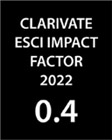The culture of trust is on trial. Links among physical and mental health, social relations, subjective welfare and trust during pandemic
DOI:
https://doi.org/10.17649/TET.34.3.3287Keywords:
trust, culture of trust, coronavirus, European Social SurveyAbstract
The paper identifies four interrelated dimensions that can describe the status of being seriously impacted by the SARS-CoV-2 (commonly called as the coronavirus) pandemic and its complex consequences. These dimensions are physical health, mental health, social relations, and subjective welfare. The proposed argument stresses that those people who had to face with hardships regarding to these existential states already before the pandemic, their status should be understood as ‘harmed’. While this unfavorable status means diverse individual problems, distresses, and sufferings, the paper claims that the number of ‘harmed’ people in a given society also affects the prospects of that specific country or collective entity. Therefore, both the micro and macro aspects should be considered, or even more, they need to be linked in order to better grasp their interconnectedness.
The paper addresses this theoretical task by invoking the conceptual framework of Piotr Sztompka about trust. In his book, Sztompka outlines the multilevel, both agent-structure framed, circularly linked constellation of the social becoming of trust, i.e. the process of how micro level (individual) trust dispositions and traits as well as trust capitals contribute to the culture of trust (or distrust) as a macro phenomenon, which pattern or reference, in the meantime, is reflected in the structural backgrounds that shape the agents’ trust components.
Through Sztompka’s theoretical lens it is possible to adequately integrate the aforementioned dimensions of being ‘harmed’ into this micro-macro constellation, and propose empirically addressable questions like: (1) how these unfavorable individual existential states influence the given subjects’ trust?; and (2) how the number of ‘harmed’ people in a society has an effect on the culture of trust? The paper inquires these questions by diverse statistical methods on data obtained from the European Social Survey. The concluding results are clear: (1) people who have hardships with their physical/mental health, live in social isolation, and/or deal with serious income problems, their trust towards others is much more constrained; (2) in countries with relevant number of ‘harmed’ people the culture of trust is weak and vulnerable, struggles with many dysfunctional dynamics and mechanisms; (3) in countries where the culture of distrust pervades ‘unharmed’ people are also more distrustful.
Downloads
Published
How to Cite
Issue
Section
License
Copyright (c) 2020 Zoltán Grünhut, Ákos Bodor

This work is licensed under a Creative Commons Attribution 4.0 International License.
Authors wishing to publish in the journal accept the terms and conditions detailed in the LICENSING TERMS.






